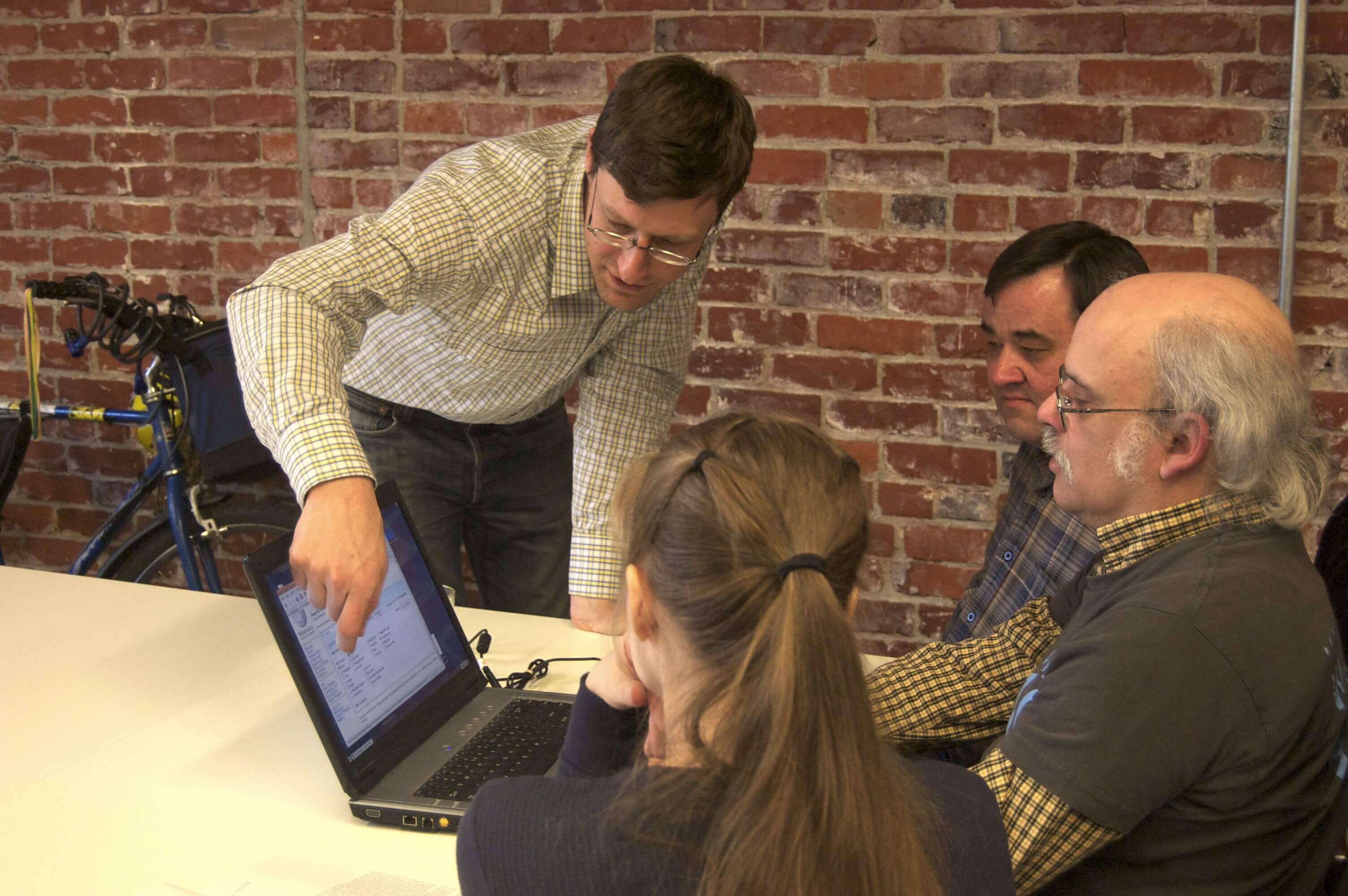Scott Hanselman has an post up called Bad UX and User Self-Blame - "I'm sorry, I'm not a computer person." It's an excellent read, and in it he discusses the phenomenon of users blaming themselves when something goes wrong when using a computer. Specifically he notes that older people and people who are new to technology feel this way often, saying that it's their fault something went wrong.
Hanselman wonders if the problem is abstractions (emphasis mine):
I think one of the main issues is that of abstractions. For us, as techies, there's abstractions but they are transparent. For our non-technical friends, the whole technical world is a big black box. While they may have a conceptual model in their mind on how something works, if that doesn't line up with the technical reality, well, they'll be googling for a while and will never find what they need.
I posted this article to Reddit, and the first comment on it was very interesting:
But at a certain point you have to understand how computers work in order to use them. I mean I wouldn't expect to be able to drive a car without understanding gears or roundabouts. I wouldn't expect to know how to read without understanding the alphabet.
Some things you have to learn. I guess the real problem is that computers are introduced to some people when they are long past the point of them being able to learn. Few people learn to read or drive at 50. And I imagine if you tried to teach someone how to read at 50 you'd quickly say MOVE!
In a way, this is also true. It's reasonable to expect people to understand just a little bit about the technology in use so that they can use it properly. But this comment is also kinda missing the point. The problem is not that users should have to learn something in order to use technology proficiently; the problem is that there aren't enough skilled, approachable teachers of technology.

Teaching is Hard
Ever tried to teach your grandparents how to use the internet? Often it's like you and they are speaking two different languages; they simply don't have any frame of reference for concepts like "browser" or "malware". On the other hand, those of us who grew up with the internet know these things like they're second nature, and that paradoxically makes it very difficult to explain to people. The things we take for granted are the things we have the hardest time explaining to others.
I'm a huge proponent of being able to explain yourself. In my eyes this "divide" between tech and non-tech people can be bridged via technical people becoming better teachers. There is a learning barrier in place between non-technical people and technology, and the people who can best assist those persons are the people who already live and breathe technology. We're the ones with the knowledge after all; we can't expect people who have no knowledge of how technology works to suddenly acquire that knowledge with no outside help. And who are the non-tech people going to get it from, if not us?
OK, great, so we should try to become teachers to the less-technically-inclined people in our lives. Sounds easy enough, right? But even if you have this lofty goal, though, teaching someone else can be difficult and frustrating.
One of the primary obstacles to learning is that the student has to actually want to learn, and not just acquire an answer for their current problem. There are some people who simply don't want to think, and there isn't a whole lot you can do for those people. My experience, however, says that this group is much smaller than we think.
Putting those people aside, if we are to help those who really want to learn, then we have to be able to determine what their level of proficiency is. Are they a total beginner, or do they have some relevant experience or knowledge that we can use as a launching point for learning about a technical topic? It's important to keep in mind that what they tell us they know and what they actually know are two different things, and part of the learning barrier is unreliable communication about what the student actually knows.
Once we've established a baseline about the student's knowledge, we can start to help them learn how to ask questions, both to people and search engines. Finding answers to your questions is really easy when you already know how to Google, but for people who have little understanding of how technology works, blindly Googling around probably isn't going to help them. It's often easier for non-tech people (hell, for the majority of people) to communicate with real persons rather than machines.
If all of this sounds, well, difficult, that's because it is. Why do you think there are so few good teachers? Because teaching is all about communication, and communication is hard.
The Solution Is Us
The ultimate goal of all this is simple: teaching someone else how to use technology should enable them to solve their own problems, and not have to rely on others to do it for them. This takes both confidence and skills, and a person who lacks one will eventually lack the other; a person with no confidence in his ability to learn may allow his skills to atrophy, while a person with no skills may lack the confidence needed to try, fail, and try again. It's a Catch-22.
The primary problem facing non-technical people today isn't that the technology doesn't work for them, it's that they face an uphill climb when trying to learn how to use it. There simply aren't enough technologically-savvy persons out there that have the patience and skills to help a novice learn how to use technology.
But there is a solution, and the solution is us.
Programmers, developers, web designers, technical managers, QA personnel, all IT people can be the solution. We can be the sherpas for the climb, the people who can actually make technology more accessible for those who are less savvy. If you are a developer, or designer, or other technical guy or girl who can help a non-tech person use technology better, consider this your wake-up call. Many of these people want help, and you are the one with the power to assist them in learning how to make technology work for them.
You can heed the call to be a teacher of technology, and consequently make life surrounded by it just a little bit easier for those who want to learn.









